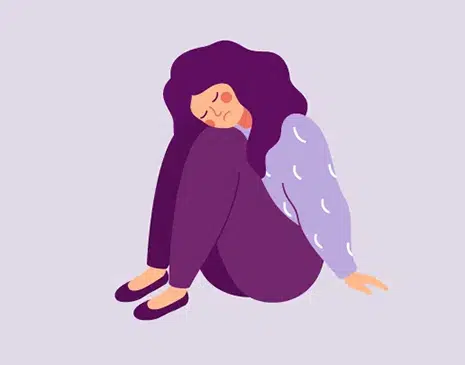Anxiety is a normal part of life, and we all experience it in one way or another.
In what’s known as the fight-or-flight response, anxiety is one of the ways our bodies respond to the stressful and overwhelming situations life throws our way. You know; the job interviews, public speaking, finding a new home, divorce – the list is endless. Don’t get us wrong, anxiety can also be triggered by positive experiences, like marriage, childbirth, travel – again, another endless list.
The little survivor in us wants to make sure we’re prepared for stressful events, so it flicks the switch on our sympathetic nervous system, increasing our heart rate and alertness for action. And that’s great, because we want to stay one step ahead of our stressors and avoid falling behind on important tasks. But, when we’re constantly wired in a state of anxiety, worried about daily events, the amount of anxiety can be indicative of an anxiety disorder.
So, we’re here to guide you through; what is anxiety? What causes anxiety? And what are the symptoms of anxiety to look out for?
What is anxiety?
In short, anxiety is the body’s physical response to danger. Back in prehistoric days, life-threatening events were commonplace, and anxiety was an expected response. If you were being chased through the jungle by a behemoth creature, a little anxiety would seem like a fair-trade reaction. Fast forward to the current day, and although we’re not regularly faced with life-threatening events, we are subject to an absolute plethora of psychosocial stressors. By psychosocial stressors, we mean anything perceived as a threat to our social status, social esteem, respect, and/or acceptance; threat to our self-worth; or a threat that makes us feel out of control.
When you consider how commonplace psychosocial stressors are today, you can understand how the symptoms of anxiety can snowball into a full-blown anxiety disorder. And every person responds to anxiety differently. We all have varying degrees of severity and symptoms. One person may experience heavy or quickened breathing and sweaty palms in response to an event where they’re speaking in front of a large audience, while another may experience heart palpitations, dizziness, and nausea in response to a heavy workload. One common consistency among many people who experience anxiety is its capability to bring on feelings of being out of control. Thus, becoming a debilitating illness for many.
So, what are the symptoms of anxiety to look out for?
The symptoms of anxiety are a spectrum, affecting people physically and emotionally.
Physical symptoms of anxiety include:
- Feeling lightheaded or dizzy
- Pins and needles sensations
- Feeling restless or unable to sit still
- Headaches
- Quickened breathing
- A churning feeling in your stomach
- Hot flushes or sweating
- An accelerated or irregular heartbeat
- Sleeping problems
- Changes in your sex drive
- Panic attacks
Emotional symptoms of anxiety include:
- Low mood and depression
- Low energy
- Feeling tense, nervous or unable to relax
- Fearing the worst
- Feeling like the world is speeding up or slowing down
- Feeling like you can’t stop worrying
- Thinking worst-case scenario
- Feeling disconnected from yourself or the world around you
What causes anxiety?
An anxiety disorder doesn’t develop as a result of one single factor. There are several factors that can play a role, including personality traits, family history of mental illness, physical health problems, substance use, and ongoing stressful life events, such as family or relationship problems, trauma, change in living arrangements, and abuse. Everyone is different, and everyone responds differently to situations. The key takeaway is to learn how to recognise the symptoms of your anxiety, so an appropriate treatment plan can be established.
This guide is designed to be informative and educational. It is not intended to provide specific medical advice or replace advice from your medical practitioner.













